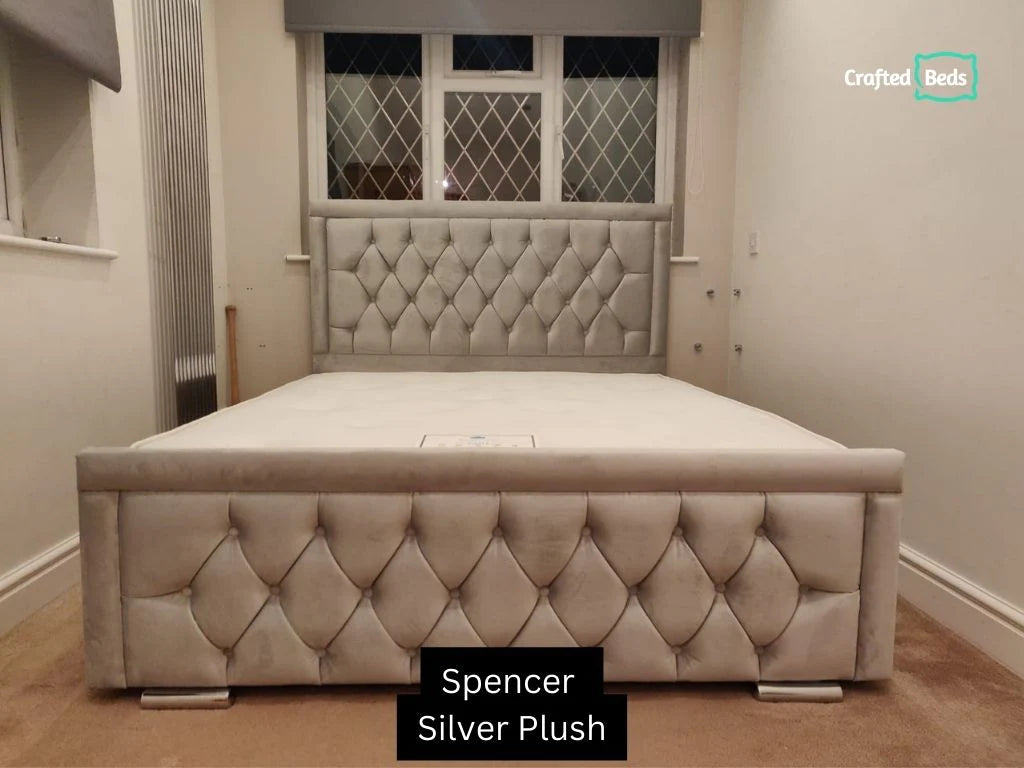A quarter of people wake up at least once a night. A variety of causes can disrupt your sleep, including nightmares, noise, sudden changes in your surroundings or a restless partner or child.
Most individuals can fall back asleep within minutes and take 30 minutes or longer to calm down.
If you fit into this description, you may be suffering from maintenance insomnia.
We'll look at this issue in greater detail later on. After reading this article, you'll have a deeper understanding of what's keeping you awake at night and how to improve your sleep quality.
What is maintenance insomnia?
Maintenance insomnia is a type of sleep disorder that makes it difficult to fall back asleep after waking up in the night.
You may find yourself tossing and turning for hours, only to feel tired and unrefreshed.
Maintaining insomnia is defined as waking up frequently throughout the night, taking longer than 20 minutes to fall back asleep, and not being able to get back to sleep after several nights of attempting.
If you wake up three or more times each week for more than three months, you might have maintenance insomnia.
The main difference between primary and maintenance insomnia is that the latter requires ongoing effort to maintain. It's important to note that both types of insomnia are equally distressing and disruptive to daily life.

Causes of maintenance insomnia
There are many potential reasons why you may experience maintenance insomnia. Some of these include:
Nightmares
Nightmares are one of the most common causes of nighttime awakenings. Stressful events or traumatic memories often trigger them.
Post-traumatic stress disorder (PTSD) may also cause experience recurring nightmares.
When it comes to children, their presence isn't the only thing that awakens you from a deep sleep. Nearly half of all adults experience occasional nightmares, with 8% suffering from chronic nightmares.
So, what instigates these vivid and sometimes frightening dreams?
Nightmares can be caused by various factors, including stress or traumatic events like divorce or the death of a loved one.
By waking you up abruptly and sometimes violently and making it difficult to fall asleep again, nightmares induce maintenance insomnia.
Nightmares are common because they offer helpful information.
They may give valuable insights into an issue you're having, but the frequent thoughts and images from your nightmare appear every time you close your eyes, making it difficult to relax and fall asleep.
Noise
Loud noises such as snoring or crying babies can make it hard to fall asleep. Even soft sounds like raindrops falling outside can keep you awake.
Temperature changes might also cause housekeeping insomnia. Sleeping with too many clothes or blankets on, having a fever, or experiencing a power outage can all alter the temperature in your home and wake you up suddenly, making it difficult to fall asleep again.
Changes in environment
When you move to a new place, you need time to adjust to the change. It includes adjusting to your new home's temperature, light levels, and other aspects.
Medications
Certain medications can cause insomnia, including antidepressants, antihistamines, antipsychotics, and sedatives.
Maintenance insomnia can also be caused by medicines, such as corticosteroids, decongestants, antidepressants, beta-agonists, and amphetamines.
Make sure the medication you're taking to address a medical problem isn't causing your sleeplessness.
Stress
Stressful situations can trigger insomnia, mainly when you're trying to go to sleep. When you're anxious, your body activates the "flight or fight" mechanism.
Your heart rate and breathing speed up, and you may become hyperaware and have racing thoughts. All of which contribute to difficulty falling asleep.
Frequently waking up and worrying about not being able to fall asleep again can raise your stress levels, setting off a self-perpetuating cycle of rising and trying to go back to sleep.

Sleep apnea
Sleep apnea occurs when you stop breathing while sleeping. The airway closes during sleep, causing interrupted oxygen flow. It can disrupt regular sleep cycles and prevent you from getting enough restorative sleep.
Pain:
Whether you have chronic or acute pain caused by a recent accident or injury, discomfort might also be a reason for maintenance sleeplessness.
It's challenging to find a comfortable sleep posture when you're in discomfort. Even if you manage to relax and fall asleep, your discomfort is likely to return, causing you to wake up again. It may happen many times during the day.
The most common reason for non-restful sleep is back pain, with over 65 million people suffering from it.
To make things worse, disrupted sleep can exacerbate back discomfort. A lack of restorative sleep may harm your body's immune system, and even your cognitive function could be affected.
Eating Heavy Meals and Alcohol Consumption
It's important to know that what you do before bed significantly influences how well you sleep. Eating too close to bedtime or eating meals high in sugar and saturated fat can irritate your stomach.
Bread, pasta, and other carbohydrates might also irritate your stomach. Physical problems such as heartburn or indigestion can cause you to wake up in the middle of the night to relieve your suffering.
Consuming alcohol or caffeine beverages too close to bed prevents your body from entering deep, restorative sleep.
Caffeine is a natural energy booster, but alcohol may help you fall asleep by relaxing sufficiently. Most people wake up at least once after consuming alcohol or caffeinated beverages.
Medical conditions
Medical conditions such as diabetes, heart disease, thyroid problems, chronic pain, and allergies can disrupt sleep patterns.
Restless partner or child
Having an anxious or overstimulating child or partner can disturb your ability to fall asleep.
What are the signs and symptoms of Maintenance Insomnia?
Maintenance insomnia is often overlooked because it doesn’t seem like something serious. However, it can be very disruptive to your life. Here are some of the more common signs and symptoms of this condition.
Sudden wake up during the night
Maintenance insomnia is characterized by being awoken due to a bad dream, loud noise, or another unknown cause. While there might be a reason for your snap alertness, it's not always clear.
Waking up from a deep sleep, but being unable to return to it, is another symptom of chronic insomnia.
Those who have trouble falling asleep, regardless of whether they have maintenance insomnia or not, are prone to suddenly waking up and being unable to fall back asleep.
Sleeping for a few hours
Sleeping only for brief periods is the most common symptom of maintenance insomnia.
If you wake up 2 to 3 hours after going to sleep and cannot fall back asleep, you may have this widespread sleep problem.
A night of fitful sleep does not constitute maintenance insomnia. If you wake up several times each night for many days over three months, you should seek treatment
Early Wake-up
There's no greater agony than waking up at 3 a.m. after setting your alarm for 5:30 a.m only to discover you can't drift off again. Many people who have regular insomnia get up too early in the morning and cannot fall asleep again.
It can happen despite your body's natural circadian rhythm, which controls its sleep-wake cycles. An interruption in your sleep cycle may cause you to wake up early and make it difficult to return to a healthy sleep state.

Neither Asleep nor Awake
Many people who have continued insomnia find themselves trapped in a limbo between sleeping and being awake. Do you think of yourself as a light sleeper?
While there's no scientific evidence that some people are light sleepers while others sleep more deeply, if you're stuck in between complete relaxation (sleeping) and attention (being awake), it might be the symptom of maintenance insomnia.
Fluttering eyelids, muscular twitching, and being easily roused indicate that you're not really falling asleep and are still half awake.
Frequently Awake at night
While most people with maintenance insomnia struggle to fall back asleep, some individuals wake up often throughout the night, but for only brief periods.
Do you wake up frequently, staring at the clock with blurry eyes and then rolling over to go back to sleep?
For individuals with these sorts of insomnia, falling back to sleep isn't the problem. Instead, it's their inability to fall asleep that troubles them.
People who have insomnia usually experience poor quality sleep. They may wake up feeling groggy and unrefreshed.
Insomnia is associated with increased daytime fatigue, impaired concentration, decreased productivity, and reduced ability to cope with stress.
Causes and treatment of maintenance insomnia
The causes of chronic insomnia include depression, anxiety, stress, and other mental health issues.
In addition, medications such as antidepressants, antihistamines, pain relievers, and certain blood pressure drugs can also contribute to insomnia (onset insomnia).
If you're struggling with insomnia, talk to your doctor about whether any of these factors could be contributing to your symptoms.
Treatment for Maintenance of insomnia
There are several treatments available for people suffering from maintenance insomnia. These include medication, behavioural therapy, cognitive behaviour therapy, and sleep hygiene.
Medication
If you find yourself unable to sleep despite trying everything under the sun, it's essential to seek medical assistance. Medications can be used to treat insomnia. They are typically prescribed if the problem isn't resolved by following the suggestions listed below.
Benzodiazepines
Benzodiazepines are sedating medications that are commonly prescribed to treat insomnia.
Examples of benzodiazepine drugs include diazepam, temazepam, lorazepam, alprazolam, clonazepam, and triazolam.
These drugs work by binding to receptors in the brain. It helps reduce anxiety and stress while also promoting relaxation.
Benzodiazepines aren't recommended for long-term use because of potential side effects, including memory loss, addiction, and dependence.
Antidepressants
Some antidepressants like trazodone, mirtazapine, bupropion, and venlafaxine are also effective in reducing insomnia symptoms. Antidepressants are generally prescribed only after other treatment options fail.
Melatonin
Melatonin supplements are another option for those who struggle with insomnia. It has been shown to improve sleep quality by increasing deep sleep. Some studies suggest that melatonin may also promote feelings of well-being.
However, melatonin supplements should not be taken in high doses. Taking more than 3 mg per day could cause serious health problems.
Herbal remedies
Many herbal remedies are sold online and in stores. Herbs such as valerian root, passionflower, chamomile tea, hops, lemon balm, catnip, and lavender oil are all-natural alternatives to help induce sleep.
While most herbs don't provide much relief, some do. For example, valerian root has been found to increase serotonin levels, which promotes restful sleep.
Sleep hygiene
Poor sleeping habits often cause sleeping disorders. Therefore, it's essential to follow good sleep hygiene practices to ensure your body gets its rest.
Sleep hygiene includes avoiding caffeine, alcohol, nicotine, and heavy meals before bedtime. Also, avoid napping during the day.
Difference between maintenance and other types of insomnia
Maintenance insomnia is often confused with other forms of insomnia. However, there are key differences that separate these two conditions.
Insomnia is defined as having difficulty falling asleep or staying asleep.
Insomnia can be classified into acute, chronic, and maintenance. Acute insomnia occurs when someone wakes up frequently during the night due to various reasons.
Chronic insomnia happens when someone suffers from recurring episodes of sleeplessness.
Maintenance insomnia is a long-term condition that persists over weeks or months. This type of insomnia usually results from poor sleeping habits. People who suffer from maintenance insomnia have trouble falling asleep and maintaining their sleep throughout the night.

Tips to stay asleep during the night
Maintenance insomnia is not always constant. Hence detecting and treating it isn't easy. If you experience any of the above indicators, symptoms, or adverse effects, it's time to take action .
Avoid Stare at the Clock
Staring at the clock is another frequent insomnia complaint. Not only is this agony, but calculating how long you've slept, when your alarm goes off, or how long it's been since you looked at the clock can keep you up for hours.
The more obsessed you become with the clock, the more difficult it will be to fall asleep.
Stay in Bed
It's all too easy to fall into the habit of waking up numerous times throughout the night, getting out of bed, and closing your eyes to fall asleep again.
While this may appear to be a sound notion, in theory, anyone who has had trouble sleeping will tell you it doesn't work.
Instead of lying in bed restlessly, get up for a few minutes. Take a stroll around your house, read, or do mindfulness training.
A relaxing activity such as this might help you sleep better. Once you've had enough energy, go back to bed.
Turn off Your Devices
It's an adage that you've undoubtedly heard before, but it's worth restating — using digital devices late at night can disrupt your body's natural sleep rhythms.
The blue light from your phone, television, and computer monitor prevents your brain from releasing chemicals such as melatonin and serotonin that aid in sleep induction.
Make a list of tasks you can accomplish while resting or before getting out of bed. Avoid scrolling through your phone or social media feed when you're sleeping.
Don't turn on the TV to watch your favourite show or fire up your computer to send a few emails. Keep your room as dark, tranquil, and quiet as possible.
Create White Noise
White noise can help you fall asleep by drowning out noises that might wake you up (the heater turning on, a car horn, or a thunderstorm).
You may block other distractions by increasing background noise with sound machines, soft music, or a fan.
Read Your Favourite Story Book
You may read before bed or utilize this technique to aid in the recovery of sleep after waking. Just make careful not to turn on any bright lights, which might wake you up even more.
According to studies, reading before bed has been found to assist induce sleep. Switch off the Kindle (as well as other screens) and pull out your favourite hardback book.
The sort of book you pick may make a huge difference. Anything too enthralling or exciting is best avoided. Choose something lighthearted, such as a gossip magazine, a book you've read many times before, or anything else.
The last thing you want to do is become addicted to a fantastic narrative that keeps you up late at night.
Stick to a Schedule
Sleep schedules are crucial for everyone, but they are particularly significant for treating all types of insomnia.
Keep your circadian rhythm in check by adhering to a consistent routine and timetable. Go to bed and get up at the same time every night, even on weekends, to help establish healthy sleep cycles.
Conclusion
Maintenance insomnia is a common disorder that affects millions of Americans each year. The best way to treat this condition is to try different methods until one works.
If none of these strategies proves successful, talk to your doctor about prescription medication.





